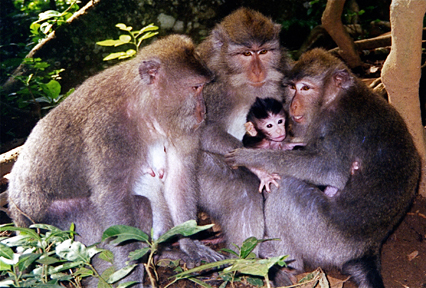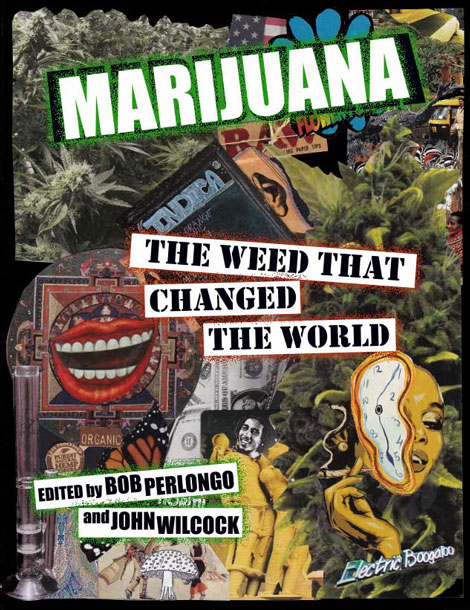
The Column of Lasting Insignificance: December 14, 2013
by John Wilcock
SOMEBODY WHO TOLD ME he had been impressed by my Japan book of the 1960s was Texan Clark Siewert whom I met in 1985 when he was publishing his London Travel Letter for up-market American subscribers, the kind who came often to Europe for shipping, theatre, and gourmet pursuits. Clark was delighted for me to write a monthly column, John Wilcock’s Britain, in which I checked out such crowd-pleasers as medieval banquets, farm weekends, Hampton Court, canal boat excursions, and the endless feuds of the Bloomsbury crowd. D.H. Lawrence’s wife Frieda accused them of having “no flow of the milk of human kindness…not a trickle, they were too busy being witty and clever.” Edith Sitwell described Virginia Woolf as “a beautiful little knitter” and Woolf in turn was catty about Katherine Mansfield whom she intimated “stinks like a — well, a civet cat that had taken to street walking.”
Siewert’s American readers adored this sort of stuff, loved the way they could admire the Regency houses of Gordon Square, where many of the group lived, while at the same time reveling in the kind of trashy gossip that seemed to cut these snotty intellectuals down to size. And few of the Bloomsbury crowd escaped this kind of incestuous censure: Sir John Rothenstein once observed that he “rarely knew hatreds pursued with such malevolence over so many years.” E.M. Forster, who had yet to come out of the closet, was a target of both Mansfield and the biographer Lytton Strachey who described him as a mediocre man (who)…will come to no good.” Strachey, in turn, was regarded as a cold fish who “combined strikingly (the Group’s) gaiety with their intermittent chilliness,” as Stephen Spender put it.
What made this kind of a story exceptionally good for the up-market U.S. readers of London Treveletter was the rewarding experience of being able to walk around an area of lovely tree-lined streets and squares so rich in transatlantic literary history. Thomas Wolfe and Ralph Waldo Emerson had both stayed at Russell Square; Edward Fitzgerald, the author of Omar Khayyam, on Great Russell Street; the family of Edgar Allan Poe on Southampton Row; Anthony Trollope on Keppel Street; Nathaniel Hawthorne on Bloomsbury Street. And the author of Frankenstein, Mary Wollstonecraft, lived on Store Street, a neighbor of Percy Bysshe Shelley whom she later married; William Butler Yeats lived in Woburn Walk and Charles Dickens roosted at the corner of Woburn Place while writing such later classics as A Tale of Two Cities and Great Expectations. The entire area, in fact, is saturated in commemorative blue plaques, and even as recently as a decade or two ago, was the kind of place to which visitors made adulatory excursions just as today they go and visit scenes where movies were shot.
But one of my most interesting assignments from Siewert was to attend one of the very earliest “Murder Weekends,” then being run by their originator, Joy Swift. She had gotten the inspiration as a means of attracting off-season visitors to the northern hotel chain for which she worked, and it had proved successful enough to cross the Atlantic and was about to be imitated by tour operators in other countries.
The weekend I attended, in the rambling Victorian Royal Albion Hotel at the coastal resort of Brighton — “the home of peers, queers and racketeers, as the old saw had it” — was billed as the 20th annual reunion of Made In Heaven, a lonely hearts society to which everybody was obliged to claim a connection.
So strict was this injunction that, upon requesting news about ‘the Murder Weekend’ at the hotel’s reception desk, I was frostily informed that they knew of no such function and it was only when I muttered the magic words ‘Made in Heaven’ that I was directed to the opening cocktail party, already in progress. Suffice it to say that the fiction was maintained by everybody; all of the time, and my own efforts to identify fellow press people (I knew there were some) were continually rebuffed. Everybody had chosen their role, whether of a successful marriage broker or cupid’s victim was all the same; nobody would step out of character for an instant. Unwilling or, in truth unable, to play a part, I was soon floundering in doubt and suspicion.
What followed was one of the most fascinating weekends I have ever experienced. Notwithstanding my own stubborn refusal to be anything other than a reporter covering the event, the “cast” and audience were inseparable, every event ambiguous. During the post-dinner dancing, one woman suddenly slumped to the floor so unexpectedly that it could have been real; in fact, even though programmed to expect the unexpected most of us were stunned, especially when an ambulance, sirens hooting, arrived to remove her and bulletins about her progress began to appear on the notice board. It became obvious she was one of the ‘actors’ but now she was gone leaving everybody unsure who the other participants still were; unsurprisingly since (as it later transcribed) they had all been trained to obfuscate and mislead.
Then another ‘murder.’ A blood-smeared body was discovered in the next room with nobody seeming quite sure who might have been in that room at the same time. Excited discussions, speculation, questions, questions, questions. Everybody was chattering excitedly at once but the fact that everybody present was an ‘actor’ by definition had by then muddied the waters to such an extent that it was hard to find a reliable co-inquisitor with whom to strip away the pretenses and establish some basics.
Nor was anybody immune from questioning, even the role of this innocent reporter attracting suspicion, a suspicion greatly enhanced by my own brief absence the next morning. I had taken advantage of being in the area to visit and interview Paula Lennon, the widow of John Lennon’s father. This explanation however was greeted with understandable disbelief even though it was true. (I had been doing research for Albert Goldman’s biography of John Lennon.)
Later that day, for the press at least, some of the mystery was solved. Joy Swift herself turned up to hold a secret backstage press conference attended by myself, the three other genuine reporters and the eight-member cast. That left 28 other participants who were still being kept in the dark.
“When I first came up with the idea I knew it had to be realistic,” Ms. Swift explained, “because if it wasn’t, people would be merely onlookers and resist getting involved. There’s no rubbish. All the clues relate to what really happened and, although I rewrite it, as it’s happening to shift people’s attention, I never cheat by changing the ending. There’s only one person who lies, the murderer.
“I tell my actors I want them to be as natural as possible. My main criteria are that they are really quick and intelligent, remember all their facts, communicate very well and are chatty, because you can’t have introverts. Most guests step right into the story because people love creating new identities for themselves. I’d say eight or nine out of ten play the game and try to solve the murders but there are always one or two who try to trip us up and are quite determined to get one to say, ‘Okay, I’m an actor.’”
Did the actors get fed up with constant questioning? I asked. “No, because if people keep at you and at you, that’s what gets the adrenalin going. Guests have to be prepared to get as well as they give. It always amazes me how much the process breaks down inhibitions. ‘And who have you been sleeping with, Betsy?’ they ask. They’re incredible; they don’t care what they say.”
On Sunday morning, the detective inspector — guests knew at least that he was an actor — summoned us to an after-breakfast meeting at which all would be explained. “Many of you,” he begins, “are obviously pathological liars,” and he revealed how he had satisfied his suspicions by searching the rooms of the more ostentatious guests. Among his discoveries, he claims, had been pornographic photos taken by a self-described ‘journalist,’ specimen jars and rubber equipment, and evidence that one ‘couple’ had actually met for the first time at Victoria Station where the man had offered his pickup $25 to accompany him for the weekend. Everybody laughed at these disclosures, especially the embarrassed guests who were named.
[JW hopes to be back at work next week.]
 Dear Friends,
Dear Friends,
Please click on this link below and vote for my photo to help me win this contest. It’s easy and just takes a second.
Thank you.
http://www.wildernessphotocompetition.com/bin/Rate?image_id=2009819939
Joan Hall
http://www.joanhallcollage.com/
===========================
it’s here…

